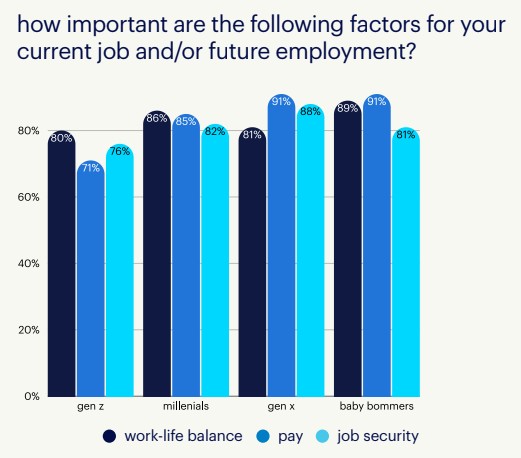
'Compensation is still important, but talent are more focused than ever on finding other ways to feel fulfilment'

Pay is no longer the most powerful tool employers can use to attract Canadian workers, according to findings from a recent Randstad report.
Work-life balance has now emerged as the top workplace priority, particularly among younger employees.
“For the first time in Workmonitor’s 22-year history, work-life balance surpasses pay as the leading motivator,” the report states. “Compensation is still important, but talent are more focused than ever on finding other ways to feel fulfilment.”

Canada is among the top countries when it comes to work-life balance, according to a previous Remote report.
Randstad’s report—based on a survey of 800 Canadian workers—also identifies a new baseline in the workplace, where success is increasingly defined by personal purpose, organisational culture, and access to development opportunities.
Notably, one in three workers said they had left a job because they disagreed with their organisation’s leadership views or stances.
Additionally, 86% reported that a sense of belonging at work improves both their performance and workplace wellbeing.
“Many are now seeking a sense of purpose and connection in their professional lives,” Randstad notes.
However, 67% of respondents said they conceal aspects of themselves at work—up from 59% the previous year—and 42% have quit a job due to a toxic workplace culture.
Despite growing interest in diversity and inclusion, 59% said their organisation is not doing enough to promote workplace equity.
A previous Glassdoor report notes that 30% of workers say their current employer does not match their values, and 35% believe it would be difficult to find an employer that aligns with their values.
Skill development is another critical factor for Canadian workers, with 39% saying they would decline a job offer if it did not include opportunities to develop future-ready skills, according to Randstad.
Around two in five workers said they trust their employer to invest in continuous learning—particularly in areas like AI and technology.

While employers have made progress in supporting skilling, workers are increasingly taking initiative themselves: 32% are willing to upskill independently. Still, 30% believe reskilling remains primarily the employer’s responsibility.
“Gaps persist between desire for training and those receiving it. Younger talent and managers are reaping the greatest benefits, but given systemic talent scarcity, organisations must ensure skilling opportunities reach all talent,” Randstad advises.
“Employers will need to renew efforts to build trust and drive equity by ensuring all talent are well prepared for changes to the world of work.”
Although 89% of Canadian business leaders say they're investing in upskilling employees, 53% admit that they don’t invest enough in training and learning opportunities for employees, according to a previous KPMG report.
“AI is here to stay, and investing in AI training is not just a nice-to-have—it’s a necessity for organisations that want to thrive in the modern era,” says Nicole Gorton, director at Robert Half. “Recognising its importance for future career success also highlights the need for continuous learning and development. Companies that foster a culture of AI adoption and provide comprehensive training will not only have a distinct advantage in attracting and retaining top talent, but also position themselves for future success.”